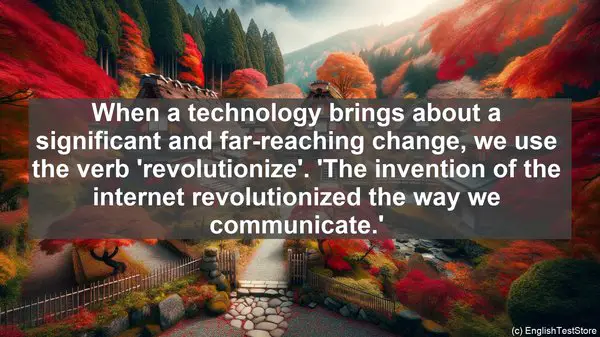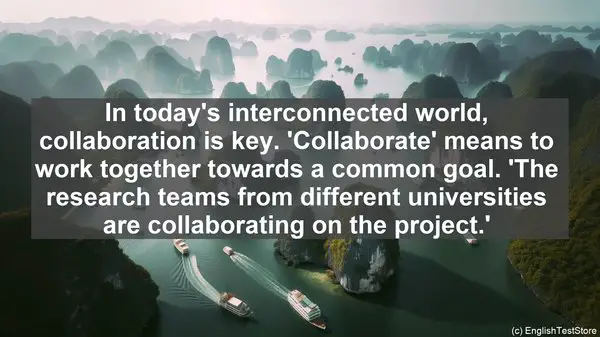Introduction
Welcome to our English class. Today, we have an exciting topic lined up – future technologies and innovations. To effectively discuss these subjects, it’s crucial to have a strong grasp of the right verbs. So, let’s dive in!
1. Predict
When we talk about the future, making predictions is inevitable. The verb ‘predict’ allows us to express our thoughts on what might happen. For example, ‘Experts predict that artificial intelligence will revolutionize various industries.’
2. Develop
The verb ‘develop’ signifies the process of creating or improving something. In the context of technology, it’s often used to describe the creation of new software, apps, or devices. ‘The company is developing a cutting-edge virtual reality application.’
3. Innovate
Innovation is at the core of technological advancements. ‘Innovate’ means to introduce new ideas, methods, or products. ‘Start-ups are constantly innovating to disrupt traditional markets.’
4. Revolutionize
When a technology brings about a significant and far-reaching change, we use the verb ‘revolutionize’. ‘The invention of the internet revolutionized the way we communicate.’
5. Transform
Similar to ‘revolutionize’, ‘transform’ denotes a substantial change. However, it also implies a complete shift in form or structure. ‘The introduction of renewable energy sources is transforming the global energy sector.’
6. Implement
To put a plan or idea into action, we use the verb ‘implement’. ‘The government plans to implement stricter regulations on data privacy.’
7. Integrate
In the context of technology, ‘integrate’ means to combine or merge different components or systems. ‘The new software seamlessly integrates with existing tools.’

8. Enhance
When something is improved or made better, we can use the verb ‘enhance’. ‘The latest update enhances the app’s performance and user experience.’
9. Adapt
In a rapidly evolving technological landscape, the ability to ‘adapt’ is crucial. It means to adjust or modify in response to new circumstances. ‘Companies need to adapt to the changing consumer preferences.’

10. Collaborate
In today’s interconnected world, collaboration is key. ‘Collaborate’ means to work together towards a common goal. ‘The research teams from different universities are collaborating on the project.’
